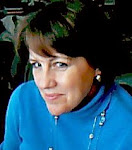Notes from ANWA Conference, February 25-26, 2011
Notes from Conrad Storad’s Friday morning presentation: “Sonoran Desert Tales,” Making Non-Fiction Fun for Young Readers.
Conrad Storad spent 25 years editing ASU’s Research Magazine. Since retiring from that position he has spent his time writing science and nature books for children. He has published 38 children’s books. He calls his books fun non-fiction, though his editors call some of them informative fiction.
Storad first talked about where to go to get information to write about when writing non-fiction for kids. He said that it isn’t necessary to go to the places you want to write about. There are many resources available, such as libraries and the Internet. He also recommended talking to experts; scientist, engineers, doctors, and professors. He said these experts don’t talk like normal people. He sees himself as an interpreter for his young audience. Storad said, “I use words and sentences that are easy to understand so that kids can understand the science.”
In this writing environment, every word, every sentence becomes very important. He said, “Try to explain day and night in 85 words so that a kid can understand it.” It is not easy writing. Kids have very short attention spans and are very visual. Storad shared his opinion that the Internet is turning us all into ADHD sufferers because of all the different information that is instantly available “just a click away.”
In this writing environment, every word, every sentence becomes very important. He said, “Try to explain day and night in 85 words so that a kid can understand it.” It is not easy writing. Kids have very short attention spans and are very visual. Storad shared his opinion that the Internet is turning us all into ADHD sufferers because of all the different information that is instantly available “just a click away.”
Storad had class members do a writing exercise. He emphasized that our number one tool is the brain. Other tools include paper, pen, word processor, a computer. The materials we use in writing are words, sentences, etc. He said if we learn something in story form we are much more likely to remember it. For the exercise, class members were assigned the task of writing for 15 minutes, describing a rainbow to someone who has never seen one—an extraterrestrial alien. Class members shared their work.
The second writing exercise Storad gave the class was to choose to write about one of several different animals and make it exciting for a child audience. Class members were given a sheet containing a small amount of information about each animal. They were told to write to the title: “All About Eating.” 30 minutes were given for writing, after which the class members shared their work with one another.








